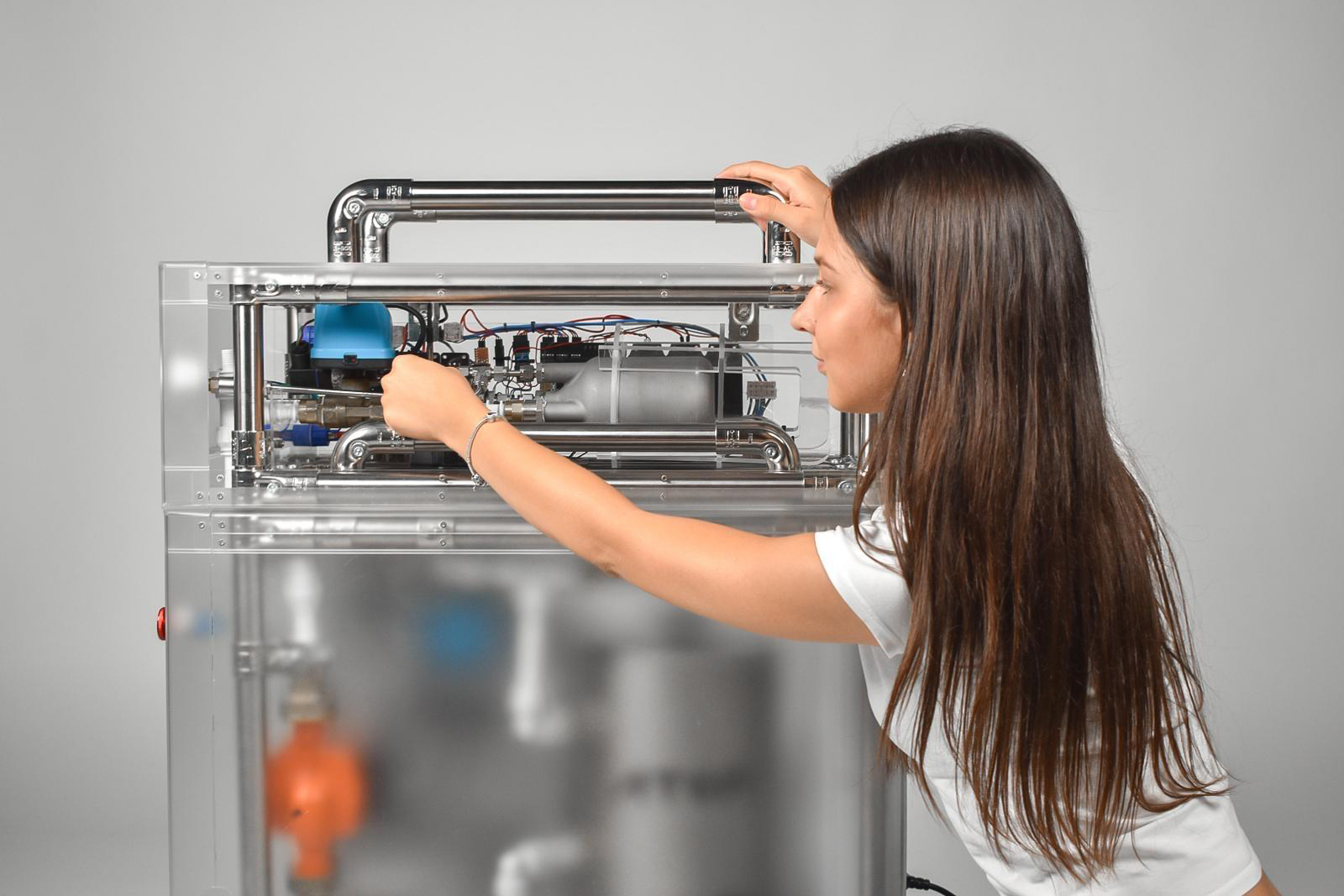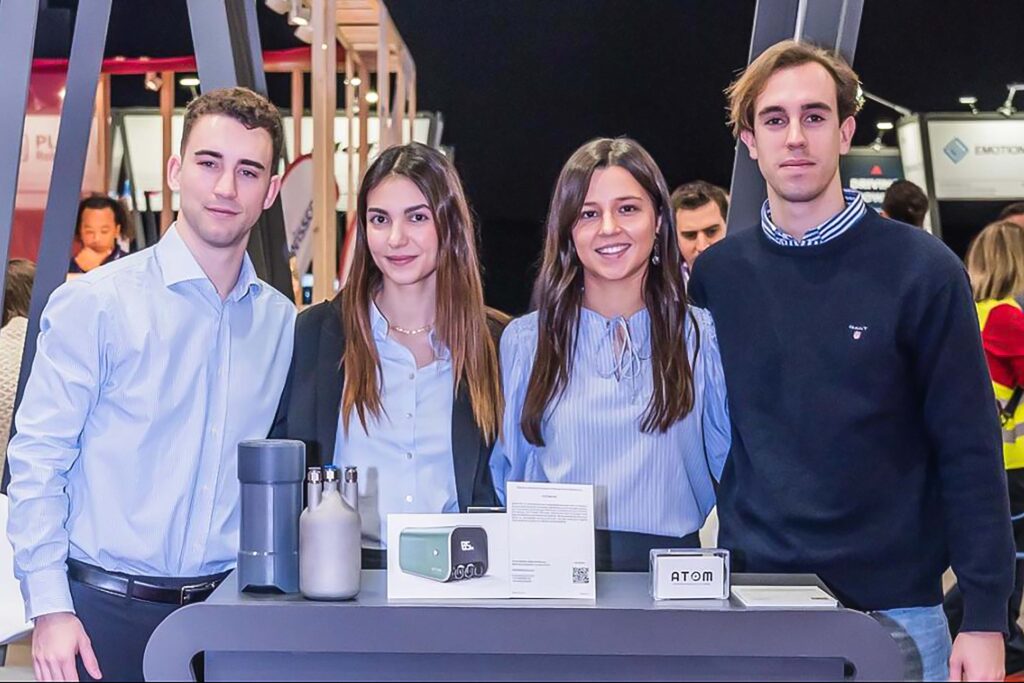Atom H2 Energytech is a startup created by Lucas Vicén, a chemical engineering student at IQS, and two industrial design students from Elisava, Marcel Rovira and Anna Martin, in which they have created a device called Atom H2 to generate and store hydrogen in a sustainable manner. It is a small device that obtains hydrogen from metal hydrides and can accumulate it and transform it into energy, fuel, or electricity, as needed, through renewable energies. Mariona Figueras, also an Elisava student, participated in the design of Atom H2.
A Prototype to Generate Hydrogen Created by IQS and Elisava, Present at Prototypes for Humanity

The Atom H2 prototype was one of the 100 projects selected to be presented at the second edition of the Prototypes for humanity programme, which will be held this November in Dubai. The event represents a gathering for presenting the most diverse innovations that have the power to catalyse actions to create a better future. The Prototypes for Humanity programme supports technological innovations with high potential that arise from the academic world.
In the words of Anna Martín, “being selected to participate in Prototypes for Humanity is a very important recognition for us. We’re excited to be able to show the potential of Atom H2 in Dubai and contribute to the vision of a more sustainable future with solutions for hydrogen storage.”

IQS Support
Atom H2 has enjoyed IQS support, both from IQS Tech Factory, the division of the university that promotes entrepreneurship among the IQS community, and from the professors and researchers at the school, in relation to the design of the hydrogen generation and storage system. Thanks to its support, the state of the Atom H2 prototype has achieved a Technology Release Level (TRL) of 5, making it a functional prototype.
Three IQS researchers have collaborated in the development of hydrogen generation and storage technology from hydrides: Dr Javier Fernández García, a professor with the Department of Chemical Engineering and a member of the Environmental Process Engineering and Simulation Group (GESPA), who advised them on studying hydrogen adsorption and desorption processes in hydride alloys; Dr Robert Texidó Bartés, also with the Department of Chemical Engineering and a member of the Materials Engineering Group (GEMAT), who assisted in the preparation of the alloy, its particle size, and its operation until reaching a proof of concept; and Dr Jordi Abellà Iglesias, a professor with the Department of Analytical Chemistry and a member of the Electrochemistry and Bioanalysis group (EQBA), who advised them on studying alloys and working in an inert atmosphere.
“The technical support we received from IQS, especially in the area of metal alloys, helped us understand the adsorption phenomenon and the properties of the alloys themselves. This technical knowledge was fundamental in allowing us to develop a hydrogen generation and storage system, which has reached a TRL 5 and a functional prototype,” says Lucas Vicén.
More recent awards for Atom H2
Atom H2 also won the James Dyson 2024 award – Spain, this past September. It is an international design and sustainability competition that encourages young engineers and scientists to offer solutions to global problems. In the latest edition, nearly 2,000 unique technology proposals were presented to address problems related to different areas, from environmental sustainability to healthcare.
The James Dyson Award presents one award per country and, for Spain, the Atom H2 prototype won the award in 2024.









